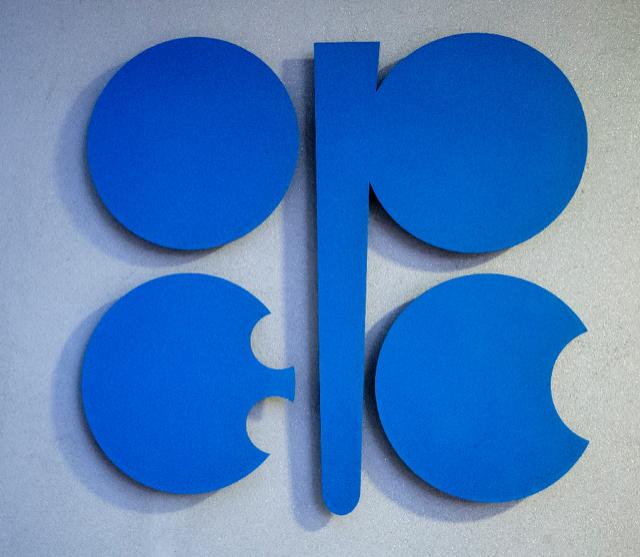By Jeph Ajobaju, Chief Copy Editor
Oversees, Nigeria’s top crudes, Bonny Light and Qua Iboe, attracted $2.50 above dated Brent on July 3, a day after the Organisation of Petroleum Exporters (OPEC) confirmed output cuts till March 2020 as global demand ebbs.
Back in Abuja, the Nigerian National Petroleum Corporation (NNPC) narrowed its list of companies for its crude-for-fuel swaps – Direct Sale Direct Purchase (DSDP) contracts – to 12 consortiums including its own trading arm, Duke Oil.
The final list may change pending ministerial approval.
Nigeria’s other gains
Differentials for Nigerian oil have been supported by steady Asian demand and rising European fuel margins.
Nigerian exports to India closed June at about 500,000 barrels per day (bpd), the highest since December 2018, according to Refinitiv data.
As Reuters reports, the high levels compensate for Iranian and Venezuelan crude kept off the market by United States sanctions, though the uptick of U.S. crude into India has outpaced WAF and other grades.
An unexpected fall in U.S. gasoline stocks is also putting Nigerian oil in higher demand in Europe even as Nigerian exports to the U.S. hit a five-week low by June 28.
The positive signs have put price offerings for major grades, Bonny Light and Qua Iboe, well above a premium of $2.50 above dated Brent.
Rationale for OPEC cuts
OPEC and its allies led by Russia agreed to extend oil output cuts until March 2020, seeking to raise the price of crude as the global economy weakens and production in the U.S. soars.
The extension by OPEC+ comes after Russian President Vladimir Putin said on June 29 he had agreed with Saudi Arabia to prolong the pact and continue to cut combined production by 1.2 million bpd, or 1.2 per cent of world demand.
United Arab Emirate Energy Minister, Suhail Al Mazroui, had said at the OPEC meeting in Vienna on July 1 that an extension of supply cuts is needed “for the current conditions of the market.”
Nigeria’s delegation head, Folasade Yemi-Esan, said her country “strongly endorsed” an extension of the deal for nine months, as it would “offer greater certainty to the market.”
The current deal reduced production by 1.2 million bpd starting from January 1, 2020.
OPEC will extend production cuts as the world’s leading oil exporters fret about a weakening outlook for global demand growth and the relentless rise in output from America’s shale fields.
The meeting agreed to prolong supply curbs by a further nine months, delegates said, which was ratified by non-OPEC allies on July 2.
Original plan
Bloomberg reports that the cuts were originally envisioned as a short-term fix in 2017 to drain excess global stockpiles, and the repeated decisions to keep rolling them forward shows the challenge of controlling the oil market in the age of shale.
While the strategy has succeeded in raising prices, OPEC share of the global oil market has fallen to the lowest since 1991.
However, oil in London traded up 1.4 per cent at $65.62 a barrel on July 1, paring earlier gains following widespread expectation of continued cuts.
“Before the meeting, everybody was expecting a rollover of the current agreement, and that’s what we have,” said Olivier Jakob, Managing Director of Petromatrix GmbH.
“We’re pretty much in a stalemate situation with the continued rise of U.S. production.”
By pushing through an extension until March 2020, Saudi Arabia is seeking to avoid cliffhanger meetings, when the group gathers only days – or even hours – before a round of curbs expires, according to a delegate briefed on the strategy.
OPEC will meet before the end of the year, perhaps in December, giving the cartel a cushion of several months between its next meeting and the end of the agreement.
Brent rallied in June after sliding on demand concern, rising U.S. supply.
For Moscow, there is an extra incentive to extend the curbs by nine months as Russian oil companies struggle to raise production over the winter.
By extending the deal into 2020, Russia could be in a better position to pump more during the spring of next year.
The idea of a longer extension was first mooted by Putin after he met Saudi Arabia’s crown prince at the G20 summit in Japan on June 29.
The ministers, who met at the Vienna secretariat of OPEC, also agreed to a second term for its Secretary-General Mohammad Barkindo, whose three-year tenure comes up for renewal in August.
But they failed to agree on a charter for a long-term alliance with non-OPEC partners, postponing its ratification.
Since OPEC joined forces in 2016 with other producers, including Russia, Kazakhstan, and Mexico, they have sought to establish an enduring basis for cooperation.
But Iran has voiced unhappiness with the dominance that non-member Russia – not to mention regional rival Saudi Arabia – exert over OPEC policy.
Impact of shale oil
The decision to extend production curbs through next March comes as the International Energy Agency (IEA) and other market watchers peg back forecasts for demand amid sluggish growth in China and India.
At the same time, American shale production has set fresh records, putting the U.S. on the brink of becoming a net oil exporter.
“The oil market is getting excited about the cut extension, but OPEC appears more and more worried about demand,” said Andrew Dodson, founder of commodity hedge fund Philipp Oil.
Saudi Arabia cuts deeper
The current version of the OPEC+ deal calls for production curbs of 1.2 million bpd, though the alliance has cut more than it pledged as U.S. sanctions on Iran and Venezuela slashed output from both countries.
Saudi Arabia has also unilaterally made deeper curbs, pumping 9.73 million bpd in June, according to a Bloomberg survey of officials, analysts and ship-tracking data.
That compares with its OPEC+ ceiling of 10.3 million.
Saudi Oil Minister Khalid Al-Falih said on July 1 the kingdom would continue to produce below 10 million bpd in July.
Compliance among the OPEC+ group as a whole will also improve in the second half, he enthused.













